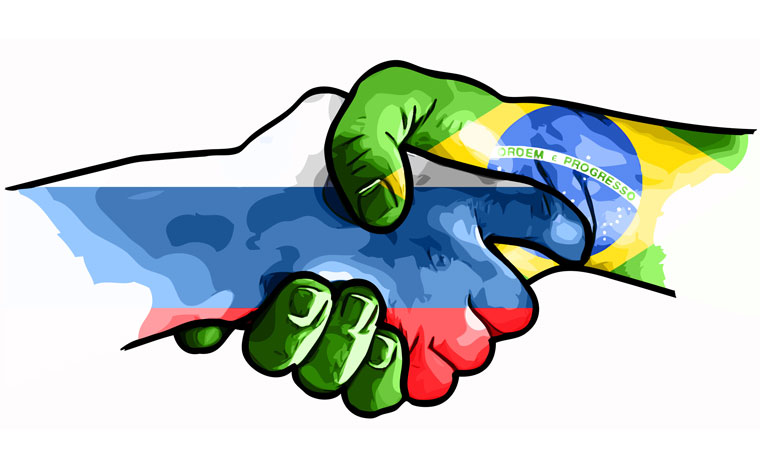
Isotopes for export
back to contents“Brazil is one of the most advanced countries in nuclear medicine. Last March we began deliveries of commercial iodine to this country. The product is used to treat thyroid disorders. At the moment, we cover all of the country’s needs for this isotope,” said Maxim Pozdyshev from Izotop’s International Business Department.
Cooperation with Brazil in nuclear medicine began last year when Izotop and the Nuclear and Energy Research Institute (IPEN) signed a contract for the supply of molybdenum-99. Molybdenum and iodine-131 for Brazil are produced at the Research Institute of Atomic Reactors (RIAR).
The partners are planning to expand cooperation. A few days ago, a delegation from Brazil visited RIAR to see first-hand how isotopes are produced and have a talk with experts engaged in the production process. “In addition to iodine and molybdenum, Brazilian experts expressed their future willingness to buy lutetium-177 produced at RIAR,” Pozdyshev said.
RIAR produces a wide variety of medical isotopes, and some of them are truly exceptional. The Institute has developed and implemented an in-house technology for the production of strontium-89, a radionuclide indispensable for the treatment of certain cancer types. Another technology developed by RIAR researchers is for the production of californium, the rarest and most expensive metal in the world. Californium-252 is a powerful source of neutrons and is used when other treatment methods (e.g. gamma therapy) proved ineffective because of high radioresistance of certain tumors. Californium fabrication is a complex and expensive process, but its use yields stunning results.
The Brazilian delegation also visited the National Nuclear Research University (MEPhI), one of Rosatom’s core universities. They discussed prospects of an academic exchange program and joint research efforts in nuclear medicine.
Izotop plans to enter international markets with molybdenum-99. “Molybdenum from Russia is rather specific as its production process involves highly enriched uranium. Moreover, our production sites have not yet been certified to European standards,” said Maxim Pozdyshev from Izotop’s International Business Department. “This restricts our access to sales markets, but some of them can be entered right now. The key goal for the near future is to come to the Japanese market.”
RIAR is Russia’s largest supplier of molybdenum-99, which is the main diagnostic substance in nuclear medicine. In 2010, the Institute launched a program backed by the Russian President to set up commercial production of this isotope. In 2012, they put in operation the first production facility with a weekly capacity of 250–300 Ci. The second facility with a 500–600 Ci capacity was commissioned in 2013. At present, they work in turns, not simultaneously, and this is enough to satisfy the needs of Russian medical institutions. RIAR gradually increases its shipments to the global market, where it has only 3% for the time being. However, the plans are to double deliveries in the near future and expand the market share to 10%. RIAR’s second molybdenum facility was built in anticipation that in 2012 Canada’s Nuclear Research University (NRU) would shut down its reactor, the largest molybdenum fabrication facility in the world. The NRU reactor was indeed shut down, but started up again in a year and a half after some life extension measures. While the reactor was under maintenance, the world market was hit by the first molybdenum crisis. It forced customers to optimize their consumption and thus decreased the demand for molybdenum-99. “This year the NRU reactor is going to be stopped finally. A slight shortage of molybdenum on the market is expected as soon as at the year end. This is when we will step in, and hopefully, we will succeed this time,” says Rostislav Kuznetsov, Director of RIAR Radioisotope Production Division. “Besides, we work in close contact with Izotop. This broadens our access to sales markets and helps promoting our products.”
As a molybdenum supplier, RIAR has an edge over its competitors. The Institute operates two isotope producing reactors, RBT-6 and RBT-10. If one of them is shut down for some reason, the other can perform its task, thus helping avoid disruption of supplies.
Izotop is an official supplier of Rosatom’s isotopic products to the global market and a key supplier of these products to Russian companies. Izotop supplies its products to more than 100 companies from 30 countries and more than 600 companies in Russia, among them medical institutions, industrial manufacturers and research organizations.




